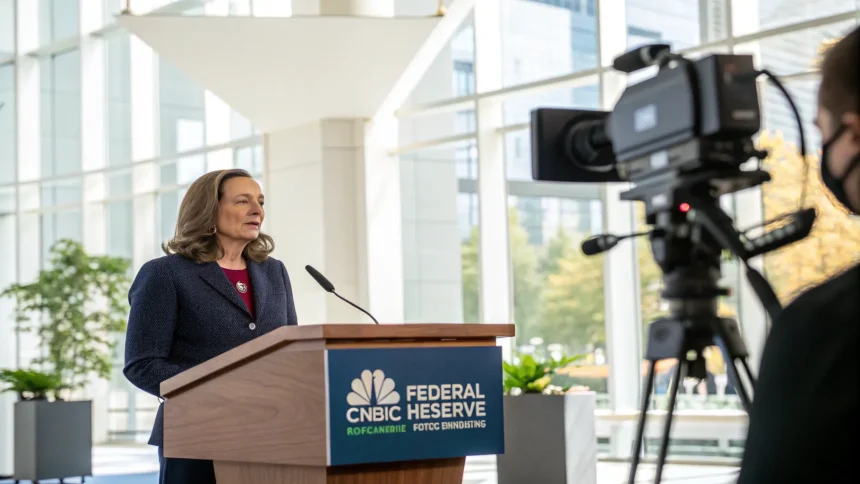Federal Reserve Governor Michelle Bowman emphasized the critical importance of maintaining the central bank’s independence in monetary policy decisions during a CNBC interview. Her comments come as former President Donald Trump has intensified his criticism of the Federal Reserve and its Chair Jerome Powell.
“It’s very important … that we maintain our independence with respect to monetary policy,” Bowman stated in the interview, which took place before a conference on bank regulation that she hosted at the Fed.
Political Pressure on Rate Decisions
Bowman’s remarks appear to respond to mounting pressure from Trump, who has publicly criticized the Federal Reserve for not lowering interest rates in line with his preferences. The timing is notable as Bowman herself was initially appointed to the Fed’s Board of Governors during Trump’s first term.
The former president recently elevated Bowman to serve as the top banking regulator at the central bank, making her comments on independence particularly significant given their professional connection.
Central Bank Independence in Focus
The principle of central bank independence has long been considered fundamental to effective monetary policy. This separation allows the Federal Reserve to make decisions based on economic data rather than political considerations.
Financial experts generally agree that political interference in monetary policy decisions can lead to suboptimal economic outcomes, as short-term political goals may conflict with long-term economic stability objectives.
“It’s very important … that we maintain our independence with respect to monetary policy.”
Leadership Under Scrutiny
Trump’s criticism has specifically targeted Fed Chair Jerome Powell, whom Trump himself nominated to lead the central bank in 2017. The relationship between the former president and Powell has been strained, with Trump repeatedly expressing dissatisfaction with Powell’s leadership and policy decisions.
The Federal Reserve operates under a dual mandate from Congress to promote maximum employment and stable prices. This requires the central bank to balance multiple economic factors when setting interest rates, including inflation, unemployment, and overall economic growth.
Bowman’s comments reflect the ongoing tension between political desires for lower interest rates, which can stimulate short-term economic growth, and the Fed’s responsibility to maintain price stability and sustainable economic conditions over the long term.
As the Federal Reserve continues to navigate complex economic conditions, the debate over central bank independence and the appropriate level of interest rates is likely to remain at the forefront of economic policy discussions.









